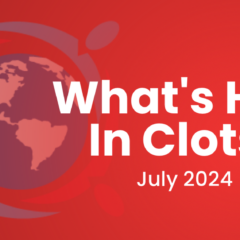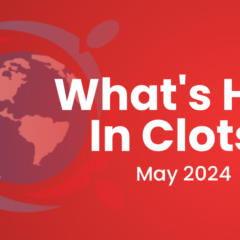Last updated on
The Power of Statins
Statins are a class of drug that is traditionally used to treat high cholesterol. They work by blocking an enzyme called hydroxy-methylglutaryl-coenzyme A reductase, which produces cholesterol in the liver. By reducing high cholesterol, statins help to reduce the risk of heart attack and stroke.
In addition to helping patients with health issues related to high cholesterol statins may also help guard against venous thromboembolism (VTE), which includes deep vein thrombosis (DVT) and pulmonary embolism (PE).
A Closer Look
While many scientists and doctors have suspected that there is a relationship between statins and VTE, nothing has been proven. However, researchers from the University of Bristol and the University of Leicester recently conducted a systematic review and meta-analysis to get a closer understanding of the relationship.
Dr Setor K Kunutsor, PhD, Samuel Seidu, MSc, and Professor Kamlesh Khunti, PHD, chose to analyze observational cohort studies and randomized controlled trials. According to their findings, they took into consideration 36 eligible studies. Of these, 13 were cohort studies with 3,148,259 participants and 23 were randomized controlled trials, which involved comparing 118,464 participants given statins or placebo medications.
After completing their review and meta-analysis, the researchers found that, “Available evidence from observational and intervention studies suggest a beneficial effect of statin use on venous thromboembolism.”
Particularly, they found the drug rosuvastatin to have the largest effect on reducing venous thromboembolism.
While this is good news for those with VTE, the researchers conclude their interpretation by acknowledging that more research must be done in order to validate their findings.
The results of this recent research echos an earlier study carried out in 2009, “A Randomized Trial of Rosuvastatin in the Prevention of Venous Thromboembolism: the JUPITER Trial.” The study was designed as a randomized, double-blind, placebo-controlled multicenter trial. It was a sub-study of the JUPITER trials, which were designed to determine if statins could be used as a preventative medication.
Researchers discovered that the healthy men and women who took 20 mg of rosvastatin daily reduced their occurrence of venous thromboembolism. They concluded that this lower risk of VTE existed separately from a reduction in the risk of arterial thrombosis.
Researchers on the JUPITER trial shared several theories as to why statins might be associated with a lower risk for VTE. They state, “Statins have several other mechanisms of action that could limit the occurrence of venous thromboembolism. Statins inhibit isoprenylation of signaling proteins, with several potential antithrombotic consequences, such as reduced tissue factor expression and thrombin generation, attenuated fibrinogen cleavage, and activation of factors V and VII.[1][2][3] Statins also augment the activity of the transcription factor Kruppel-like factor 2 (KLF-2), promoting thrombomodulin expression on endothelial cells, thereby enhancing the activity of the protein C anticoagulant pathway.[4]”
The Future
With all of this information, it seems as though statins may be beneficial for patients with VTE. With that said, science hasn’t come to a solid conclusion just yet. As the researchers from the University of Bristol and the University of Leicester suggest, more information is needed. Perhaps their new results will inspire others to explore this fascinating connection.
[1] Undas A, Brummel-Ziedins KE, Mann KG. Statins and blood coagulation. Arterioscler Thromb Vasc Biol 2005;25:287-294
[2] Kaba NK, Francis CW, Moss AJ, et al. Effects of lipids and lipid-lowering therapy on hemostatic factors in patients with myocardial infarction. J Thromb Haemost 2004;2:718-725
[3] Tsai AW, Cushman M, Rosamond WD, et al. Coagulation factors, inflammation markers, and venous thromboembolism: the Longitudinal Investigation of Thromboembolism Etiology (LITE). Am J Med 2002;113:636-642
[4] Sen-Banerjee S, Mir S, Lin Z, et al. Kruppel-like factor 2 as a novel mediator of statin effects in endothelial cells. Circulation 2005;112:720-726



